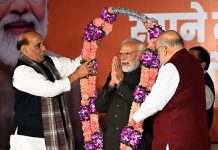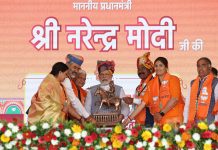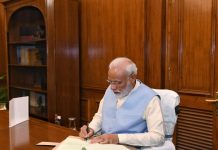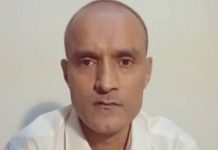 The Central Board of Secondary Education (CBSE) has been in the eye of the storm ever since the reports emerged that the question papers of Economics of class 12th and Mathematics of class 10th were leaked on March 26 and March 28 respectively.
The Central Board of Secondary Education (CBSE) has been in the eye of the storm ever since the reports emerged that the question papers of Economics of class 12th and Mathematics of class 10th were leaked on March 26 and March 28 respectively.
A deluge of reactions on social media and electronic media captured the attention of the entire nation as the matter concerned the future of over 20 lakh students. Students and parents were found baffled and academicians and policymakers were not able to give any reasons and remedies for the failure of the examination system.
The paper was allegedly leaked by the Economics teacher Rakesh Kumar, DAV School, Una, with the help of Amit Sharma, a clerk and Ashok Kumar, a peon of the school, three days before the paper was scheduled on March 26.
Rakesh had allegedly taken out a bundle of Economics paper from the bank’s strong room on March 23, while taking out a bundle of computer science paper that was due that day. A handwritten copy of economics paper was then sent to as many as 40 WhatsApp groups.
The Special Investigating team of Delhi’s crime branch arrested the three staff members of DAV School, Una, in connection with the CBSE Class 12 paper leak. Senior Official of Delhi Police informed that the Manager of Union Bank of India and Principal of Navodya Vidyalaya, Una, where Rakesh was the Superintendent of CBSE Exam would be questioned.
The imprudent response from the CBSE showed that the authorities were hardly prepared to deal with this challenge. The initial response, “the board has taken cognisance of certain happenings in the conduct of the certain examinations as are being reported. With the view to upholding the sanctity of the board exams and in the interest of the fairness to the students, the board has decided to reconduct the exams in the following subjects. Dates for the fresh exams and other details shall be posted on CBSE website in a week,” sent shockwaves to the entire student community. There was an outrage at the national level. Students appearing for class 10 and class 12 examination joined by NSUI held protests at Delhi’s Jantar Mantar, Parliament Street. Students in other parts of the country were also agitated.
After the widespread protests and preliminary investigation, the re-exam for class 10 Maths paper was ruled out.
Delhi Police Crime Branch sought a reply from Google about an e-mail that was sent to the CBSE Chairperson Anita Karwal in connection with the paper leak case. The e-mail, which was sent to the CBSE Chairperson, had images of handwritten question papers attached to it. In the backdrop of paper leak, the Human Resource Development (HRD) Ministry has constituted a seven-member committee to scrutinise the board’s examination process.
Examination is a necessary evil. It is crucial to assess the merit of a student at the culmination of a course but our system has flaws. To gauge the academic learning of a student on the basis of how much he can reproduce in exactly the same words he has been taught or the prescribed books in an allotted 2-3 hours time is not fit for all.
Many students are able to perform better in the practical sphere on the basis of their knowledge but are not able to give a written expression to their knowledge. Scoring high grade has become a compulsory ritual for every student and they leave no stone unturned to achieve it- sometimes through unfair means. Mushrooming of coaching institutes in every corner of the country is a testimony to the rat race students are forced to jump in to fetch scores albeit knowledge and success. The advertisements of institutes scream that they provide the best route to crack myriad examinations. The privately owned and unregulated institutes charge an exorbitant fee which many parents pay through their nose.
The paper leaks have also indicated the infiltration of these training shops in the examination system of school board and laxity on the part of board administration.
After 26 years of liberalisation of Indian economy and its integration with the global markets, India still fails to afford to run a parallel education system to produce non-employable prototypes. India spends $264 (Rs.17,515) per student per year as compared to $1,800 (Rs.1,19,421) per student per year in China. The World Bank report on its worldwide survey of public spending on education stated that India spends a meagre 11% of public expenditure on education as compared to 20% by China. The students need to look at the alternatives because there are lacunae in the Indian education system. The education system should be made contemporary and stress-free.
letters@tehelka.com













